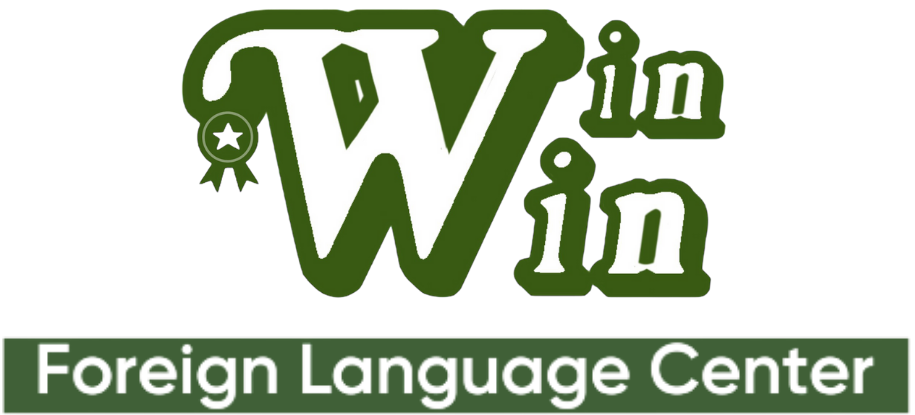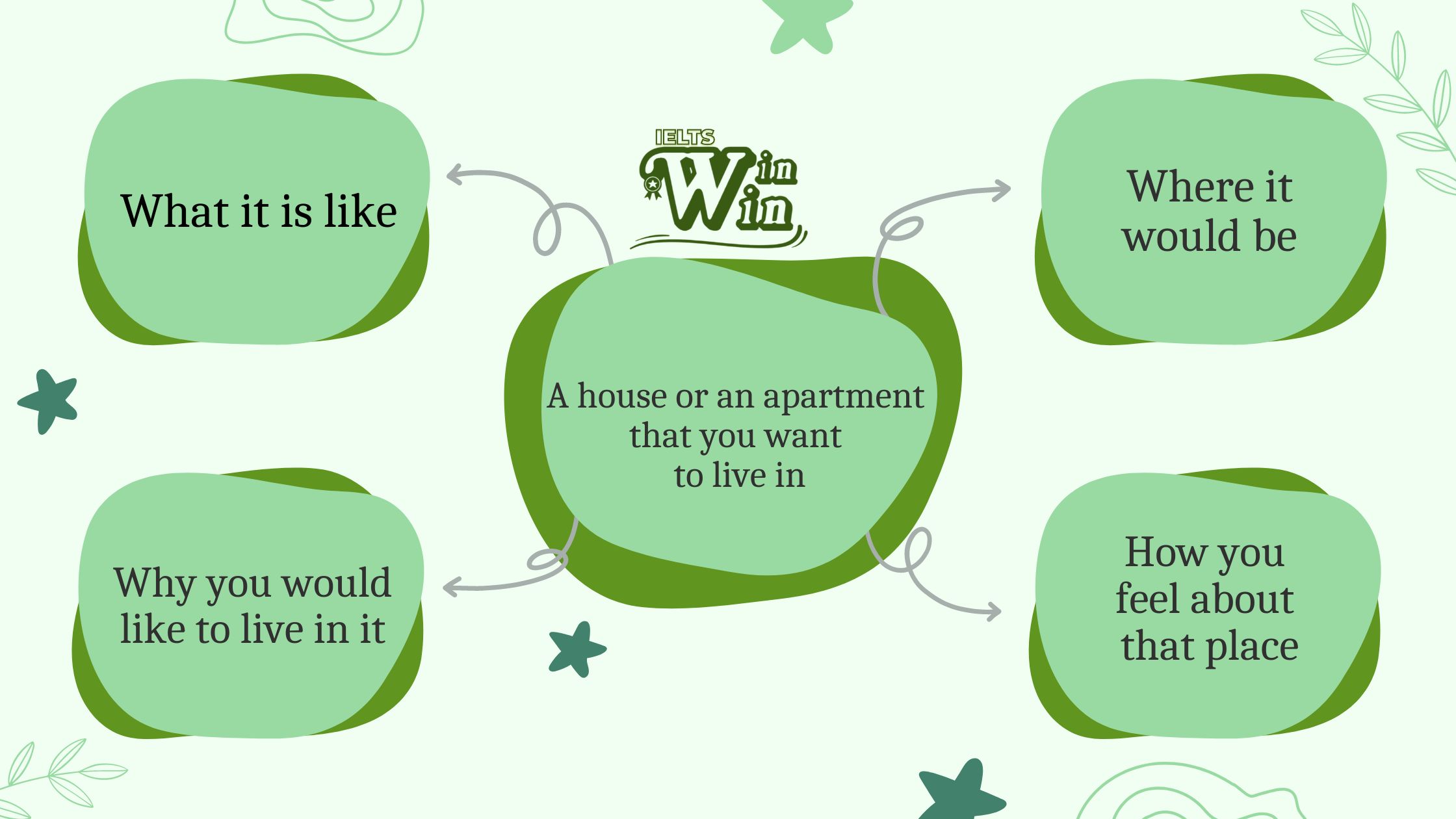✨ Part 2: Describe a house or an apartment that you want to live in.
You should say:
- what it is like
- where it would be
- why you would like to live in this house or apartment
- and explain how you feel about this house or apartment
Living in the bustling HCMC for so long has prompted me to consider purchasing my dream house in a more secluded area. I know this is a far-fetched idea but I’m thinking of living in a house in the mountainous region of Da Lat, a.k.a the “city of thousand flowers.”
Da Lat is renowned for its mild atmosphere, making it the perfect spot to call home as it’s neither too hot nor too cold. I’m not looking for anything flashy, I simply want my dream house to be a one-storey detached house with a veranda overlooking the garden. I have a deep appreciation for the flora and fauna in Da Lat, so having a flower garden where I can admire its beauty and satisfy my dad's green thumb is a must-have. Imagine how cosy and warm it would be to sit with my family on the veranda and enjoy a meal in the cool weather of Da Lat. I want my dream house to be spacious, with only one floor so that my parents don’t have to climb stairs, and since everyone shares the same floor, we will be more connected. Plus, I need a big kitchen so our family members can all cook together and bond as a family. And of course, we’ll have some comfy sofas for the family to chill out while sipping on hot drinks. Da Lat ain't just about nature, it's got all the conveniences you need, from various eateries to hospitable service. Literally, everything will be at my fingertips.
HCMC is already plagued by pollution, from bad air quality to unhygienic water sources. I’m not into the fast-paced lifestyle and polluted environment of this metropolis, so I’m itching to own a house in Da Lat.
Prompted: /ˈprɒmptɪd/ (v) - khuyến khích, thúc đẩy, gợi ý
Secluded: /sɪˈkluːdɪd/ (adj) - tách biệt, hẻo lánh, ít người qua lại
Far-fetched idea: /fɑː ˈfetʃt aɪˈdɪə/ (n) - ý tưởng xa vời, khó tin
One-storey detached house: /wʌn ˈstɔːri dɪˈtætʃt haʊs/ (n) - ngôi nhà riêng một tầng
- Veranda: /vəˈrændə/ (n) - hiên nhà, sân trước
- Flora: /ˈflɔːrə/ (n) - thực vật của một khu vực
- Fauna: /ˈfɔːnə/ (n) - động vật của một khu vực
- Green thumb: /ɡriːn θʌm/ (n) - khả năng trồng cây, làm vườn tốt
- Plagued: /pleɪɡd/ (v) - gây phiền hà, làm phiền
- Unhygienic water: /ʌnhaɪˈdʒiːnɪk ˈwɔːtər/ (n) - nước không vệ sinh
- Fast-paced: /ˈfæstpeɪst/ (adj) - nhanh, sôi động
PART 3
✨What are the differences between apartments and houses in your country?
Apartments are usually smaller than traditional houses in many countries, including Vietnam. They often offer shared amenities such as gyms, swimming pools, and parking lots, as well as better security systems compared to houses. On the other hand, houses are standalone structures that offer more space and privacy compared to apartments. While houses may come with higher purchase and maintenance costs, they are generally more spacious than their counterparts.
- Amenities: /əˈmiːnɪtiz/ (n) - tiện nghi, tiện ích
- Standalone: /ˈstændələʊn/ (adj) - độc lập, không phụ thuộc
- Spacious: /ˈspeɪʃəs/ (adj) - rộng rãi, thoải mái
- Counterparts: /ˈkaʊntərpɑːts/ (n) - đối tác, đối tượng tương đương
✨What kinds of housing are the most popular in your country?
While both apartments and houses are popular in Vietnam, apartments are becoming increasingly common. This type of housing is particularly prevalent in large cities where land is limited, making multi-storey buildings with smaller units a practical solution for densely populated areas. Additionally, due to their affordability and convenience, apartments are a popular choice among many Vietnamese families. Moreover, many people buy apartments for investment purposes, renting them out to generate passive income for instance.
- Prevalent: /ˈprevələnt/ (adj) - phổ biến, thịnh hành
- Multi-storey buildings: /ˌmʌlti ˈstɔːri ˈbɪldɪŋz/ (n) - các tòa nhà đa tầng
- Densely populated: /ˈdensli ˈpɒpjʊleɪtɪd/ (adj) - dân cư đông đúc
✨What are the differences between housing that young people and old people like?
Several factors can influence the housing preferences of both young and old people. Generally, younger people prefer living in urban areas that offer easy access to amenities like public transportation and entertainment options, which cater to their needs for easy daily commuting and socialising with friends. Conversely, older people often prefer living in quieter areas with access to green spaces and outdoor activities. They typically prioritise larger homes with more living space and privacy.
✨Do people usually rent or buy a house?
Whether someone chooses to rent or buy a house depends on their individual preferences and financial circumstances. High-income earners may prefer to buy a house as it offers the benefits of long-term stability, financial investment, and ownership. Conversely, those who are financially constrained may choose to rent as they can’t afford the upfront costs associated with buying a house and may not want to bear the ongoing expenses of maintaining and repairing the property. Some people who require more flexibility due to frequent moves may prefer to rent a house rather than buy one. Ultimately, the decision to rent or buy depends on many factors unique to each individual.
- Long-term stability: /lɒŋ tɜːm stəˈbɪlɪti/ (n) - ổn định dài hạn
- Constrained: /kənˈstreɪnd/ (adj) - bị hạn chế, bị giới hạn.
Xem thêm các bài viết về Speaking Part 2 và 3 ở đây bạn nhé
Đừng ngần ngại để lại thông tin hoặc liên hệ với chúng mình qua địa chỉ sau đây để IELTS WinWin có thể hỗ trợ tốt nhất cho bạn nhé!
Địa chỉ: 118 Nguyễn Xuân Khoát, P. Tân Thành, Q. Tân Phú, TP. Hồ Chí Minh.
Fanpage: IELTS WinWin
Zalo: 0965 439 239 – 085 301 8788
Website: ieltswinwin.com



